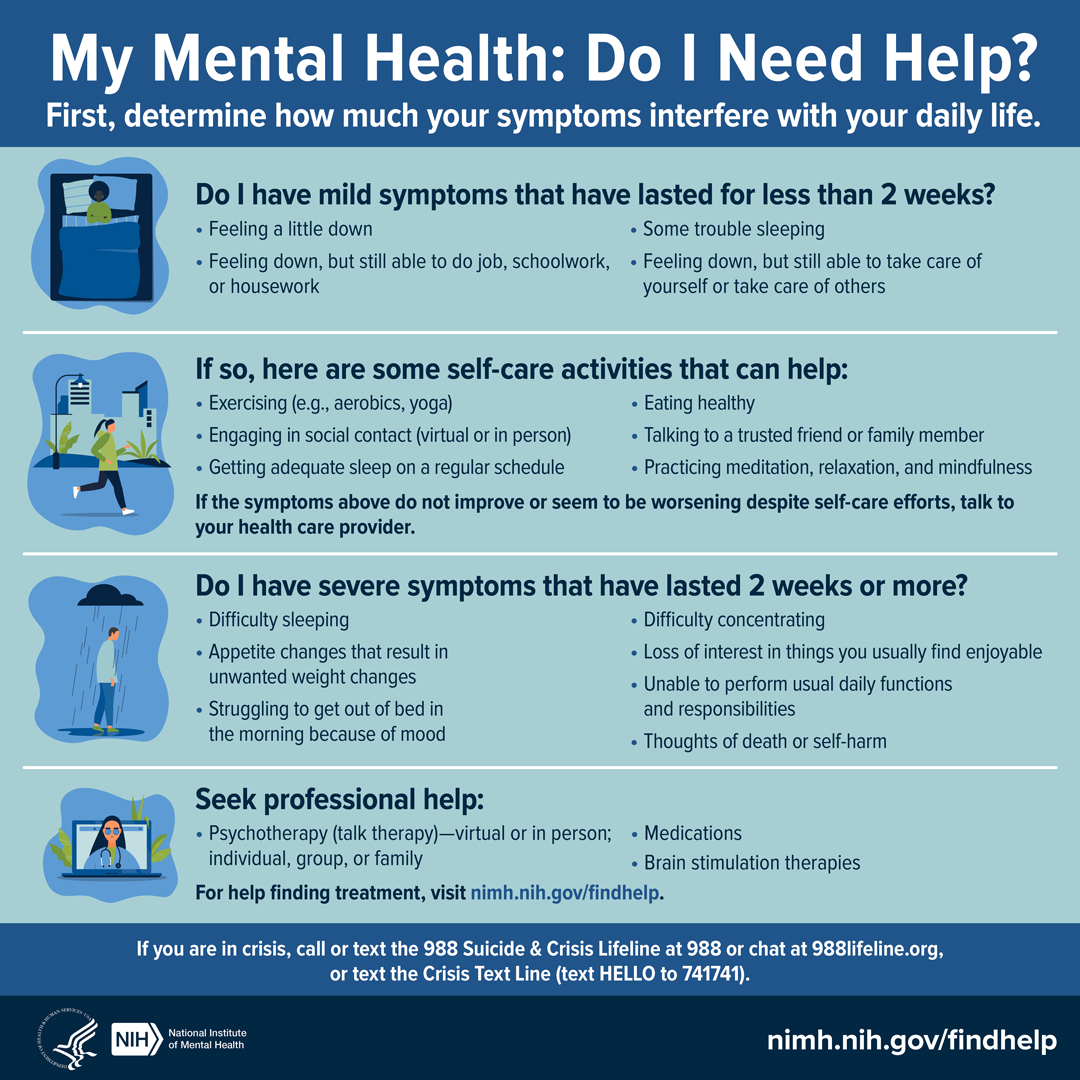7 Emotional Health
What Is It?
Emotional well-being is described as a general sense of well-being encompassing positive emotions, satisfaction with life, a sense of meaning and purpose, and the ability to achieve personal goals (Sabri & Clark, 2015).
Emotional Intelligence is the capacity to recognize, utilize, and regulate your emotions constructively to reduce stress, communicate clearly, empathize with others, navigate challenges, and resolve conflicts.
Some key traits for emotional intelligence (Merriam Webster):
- Self-management is the ability to find the self-control and mastery needed to take control of one’s work (e.g., to manage one’s time, workflow, and communication).
- Self-awareness is to have an awareness of one’s personality or individuality
- Social awareness is the ability to take the perspective of and empathize with others, including those from diverse backgrounds and cultures
Why Is It Important?
Emotional Wellness
Prioritizing and having good emotional wellness can help you to handle life stressors and be able to adapt and handle difficult situations. Being emotionally well can help you to become more resilient, reduce stress, get better sleep at night, strengthen your social connections, cope with loss, and be more mindful (NIH, 2022).
Those who are emotionally well have been shown to have the ability to say “no” without feeling guilty, share their feelings/emotions with others without feeling embarrassed, be more content in life, feel like they have a good support system around them, and feel more confident in who they are (UNH, 2020).
Emotional Intelligence
Being emotionally intelligent can help us recognize, understand, and manage our emotions, which can be vital for building and maintaining healthy relationships with the people around us. Self-awareness is described as the foundation of emotional intelligence (Harvard, 2019). Greater awareness of emotions and behaviors leads to an increased likelihood of being able to manage them. Self-aware people are more likely to be confident, creative, and decisive, and have the ability to build strong relationships (Harvard, 2019). Being self-aware can lead to better emotional regulation, especially in stressful situations. Strong self-regulation can promote a more positive outlook on life and the ability to adapt to a variety of circumstances (Harvard, 2019).
Tools You Can Use
While it may be difficult to take time on busy days to manage emotional health, spending even 10-20 minutes can be beneficial. Here are some ways you can improve your emotional health (CDC, 2023):
- Go outside
- Take a quick walk or drink your morning coffee on the porch
- Be active
- Lift weights, do some push-ups, clean your house, or play a sport
- Use relaxation techniques
- Meditation, body scanning, journaling
- Create a self-care routine
- Have a good morning and night routine in place or make yourself some tea and read a book before bed
- Check-in with yourself
- See how you’re doing, reflect on how you feel today, and write it down if that helps!
- Laugh
- Watch a funny video or movie to lift your spirits
- Find an inspirational song or quote
- Write down the quote and hang it up in your bedroom, or listen to a good song when you need a pick-me-up
- Reach out to your social network
- Call a family member or grab lunch with a friend
To Learn More
Reflection
References

